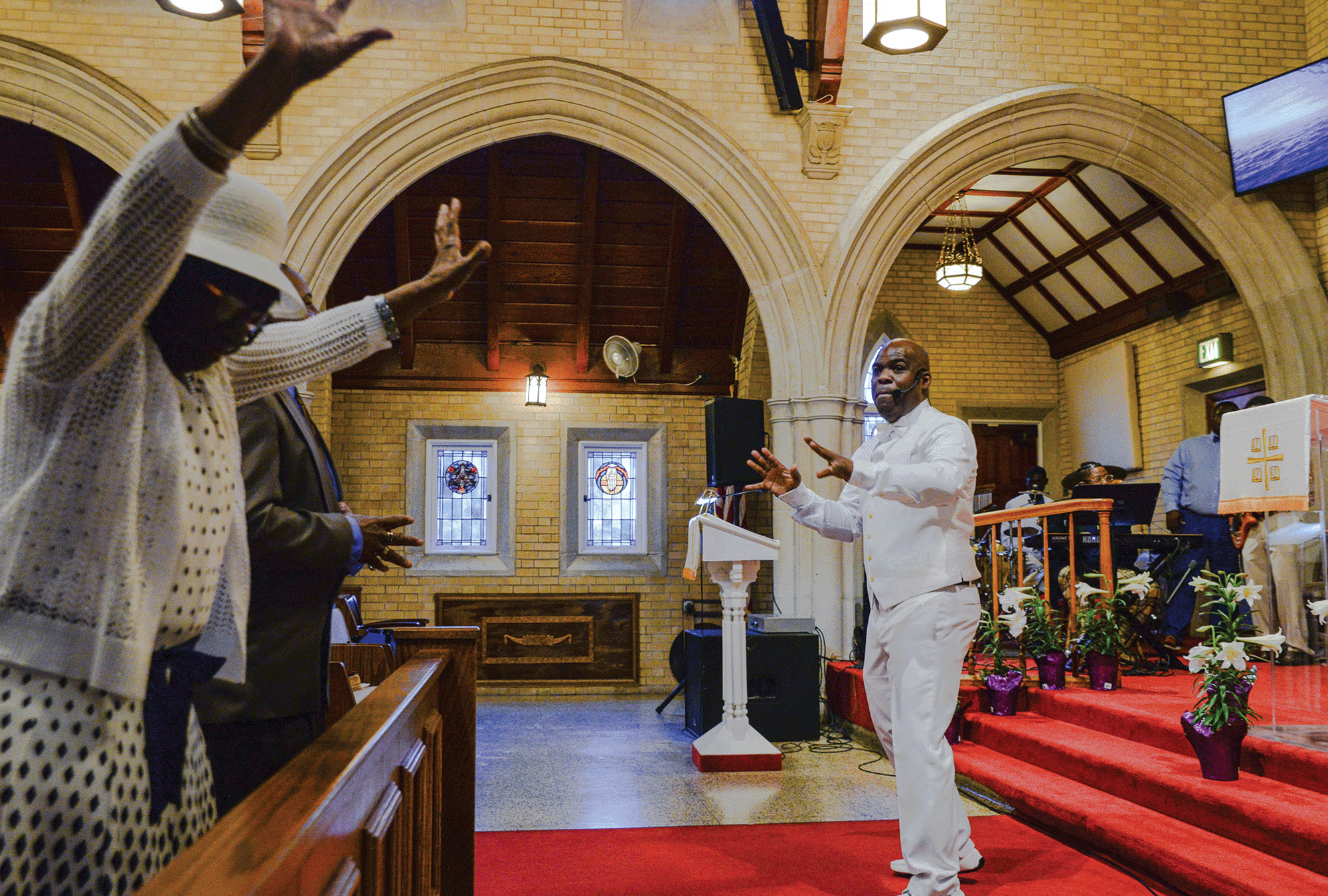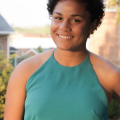
Reverand Gregory Manning preaches on Easter Sunday in 2023 at Broadmore Community Church in New Orleans. / Photo by Halle Parker
In Louisiana’s ‘Cancer Alley,’ Two Churches Fight for Justice
MANY CONSIDER LOUISIANA ground zero for the country’s most pressing environmental problems. The risks of living in a state long nicknamed “Sportsman’s Paradise” continue to mount as worsening, climate change-fueled hurricanes threaten its degrading coastlines, which slip away with rising tides. Meanwhile, an ongoing industrial boom endangers the health of residents living along the fence line of some of the major fossil fuel plants that help drive global warming. But for two quite different church communities — one deep in Louisiana’s countryside and the other in the state’s most populous city — the risks present an opportunity to model what’s needed for a resilient and faithful future.
Tucked in the rural remains of Louisiana’s plantation country, just under 500 people, most of them Black, call the small town of Convent, La., home. The 300-year-old community, situated about 50 miles west of New Orleans on I-10, moves with the bend of the winding Mississippi River, which cuts through the entirety of St. James Parish. Convent serves as the parish seat, and many of the families date back generations, descending from people who were enslaved on sugarcane and indigo plantations.
But people aren’t the only ones who reside there. Some of the wide swaths of land once used for plantations began to be sold to chemical companies in the mid-to-late 1900s. On the eastern end of Convent, a trio of industrial plants neighbor each other, spewing pollution. The coal export facility, fertilizer manufacturer, and chlorine manufacturer each silently release their own toxic mix of hazards into the air — and Convent residents like Rev. Roderick Williams breathe that air every day.
Williams believes his neighbors have suffered as a result, as cancer has spread throughout his community and others in St. James while chemical plants proliferated. It’s challenging to attribute a single cancer case to environmental pollution, but Louisiana Tumor Registry data shows that at least one census tract in St. James has a significantly higher rate of cancer than much of the state.
Williams’ hometown of Convent and the rest of St. James Parish sit in the heart of Louisiana’s chemical corridor, an 85-mile stretch of the Mississippi River running from Baton Rouge through New Orleans. The heavily industrialized swath — forged through the most generous property tax exemption program in the nation — has garnered the infamous nickname of “Cancer Alley” due to concerns about the health impact of the more than 200 industrial plants scattered there. A 2021 ProPublica report found that “Cancer Alley” was one of the country’s largest hotspots for toxic air.
For more than 20 years, Williams has been among the growing number of residents willing to oppose multinational, billion-dollar corporations and to fight proposed new chemical plants in his community.
“You can’t stop what’s here already, but you can stop more plants from coming in. Now, it’s all about prevention,” the 48-year-old pastor told Sojourners. He recently joined a local environmental advocacy group called Rise St. James that is suing the parish to ban the development of new industrial plants drawn to the Mississippi River’s ease of transportation.
And an integral piece to his battle? Faith.
“Faith is imperative. Without faith, it’s impossible to please God,” Williams said.
Not only is faith important, but Williams is also part of a movement of religious leaders who say God tasked us from the start to care for God’s creation—a biblical responsibility to the health of the Earth. And as church leaders help address major environmental challenges, some in Louisiana find it also helps churches remain financially viable as consistent donations and membership continue to decline.
Read the Full Article

Got something to say about what you're reading? We value your feedback!


